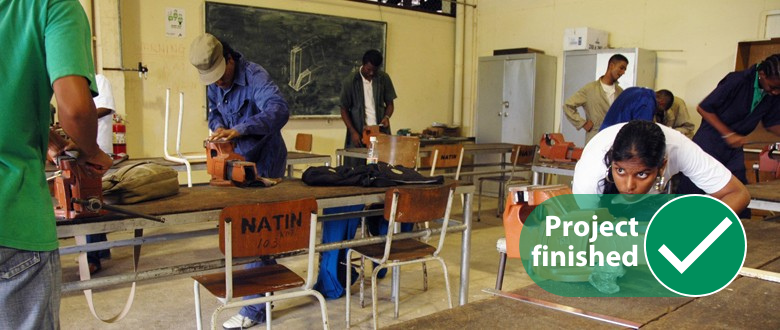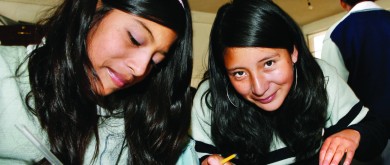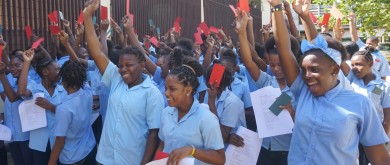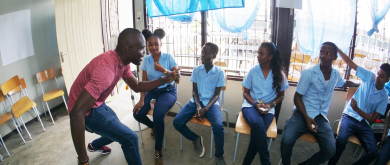
The iGROW programme creates a more supportive school environment for students in lower secondary vocational education and training on issues relating to ASRHR and GBV.
- Ministry of Education, Science and Culture (MinOWC)
- Institute for Graduate Studies and Research in Suriname
- MinOWC Directorate for Vocational Training (ODB)
- Centre for In-service Training (CENASU)
- Stichting Lobi (national chapter of International Planned Parenthood Federation)
- YAM (Youth Advocacy Movement)
- Stichting ProHealth
- Stichting YES (Youth Empowerment Suriname)
The iGROW programme pilots a whole school approach to creating a supportive environment on issues relating to ASRHR and GBV.
The programme centres on improving the professional development of teachers and school leaders, and on strengthening the collaboration between schools and civil society.
The whole school approach has 3 dimensions:
- Improved knowledge, policy, and practice of LBO teachers and school directors for addressing ASRHR and GBV.
- Safe spaces for LBO students to critically reflect on and speak openly about ASRHR and GBV.
- Appropriate outreach to LBO students’ parents or caregivers, through positive school-parent/caregiver relations and support for parents or caregivers in addressing ASRHR and GBV.
Within this whole school approach, collaboration between LBO schools and civil society organisations (CSOs) plays a central role. Suriname has several CSOs that have strong expertise and experience working with adolescents on these and similar issues. Enhanced CSO-school collaboration significantly improves outreach to vulnerable adolescents at risk of dropping out, as well as to their parents or caregivers, thus contributing to a safe and supportive school environment.
By the end of the iGROW programme:
CENASU, the privileged INSET provider of the MinOWC:
- will have developed and implemented in-service training modules;
- provides coaching on ASRHR and GBV for LBO teachers and school leaders.
Stichting YES and ProHealth: will have developed improved empowerment trajectories on ASRHR and GBV for students and parents or caregivers, and will have piloted these in 6 LS VET schools.
YAM: will have developed improved information, education, and communication sessions on ASRHR and/or GBV, and will have piloted these in 4 LS VET schools.
The implementation of the iGROW programme will be documented and analysed by the Institute for Graduate Studies and Research of Anton De Kom University of Suriname.
To reach its goals, VVOB Suriname develops the capacity of its education partners. VVOB uses capacity development trajectories that give partners maximal responsibility in the execution and management of their own change processes. This is done through technical assistance provided by the VVOB Suriname team, which includes both local and international educational and change management experts.









